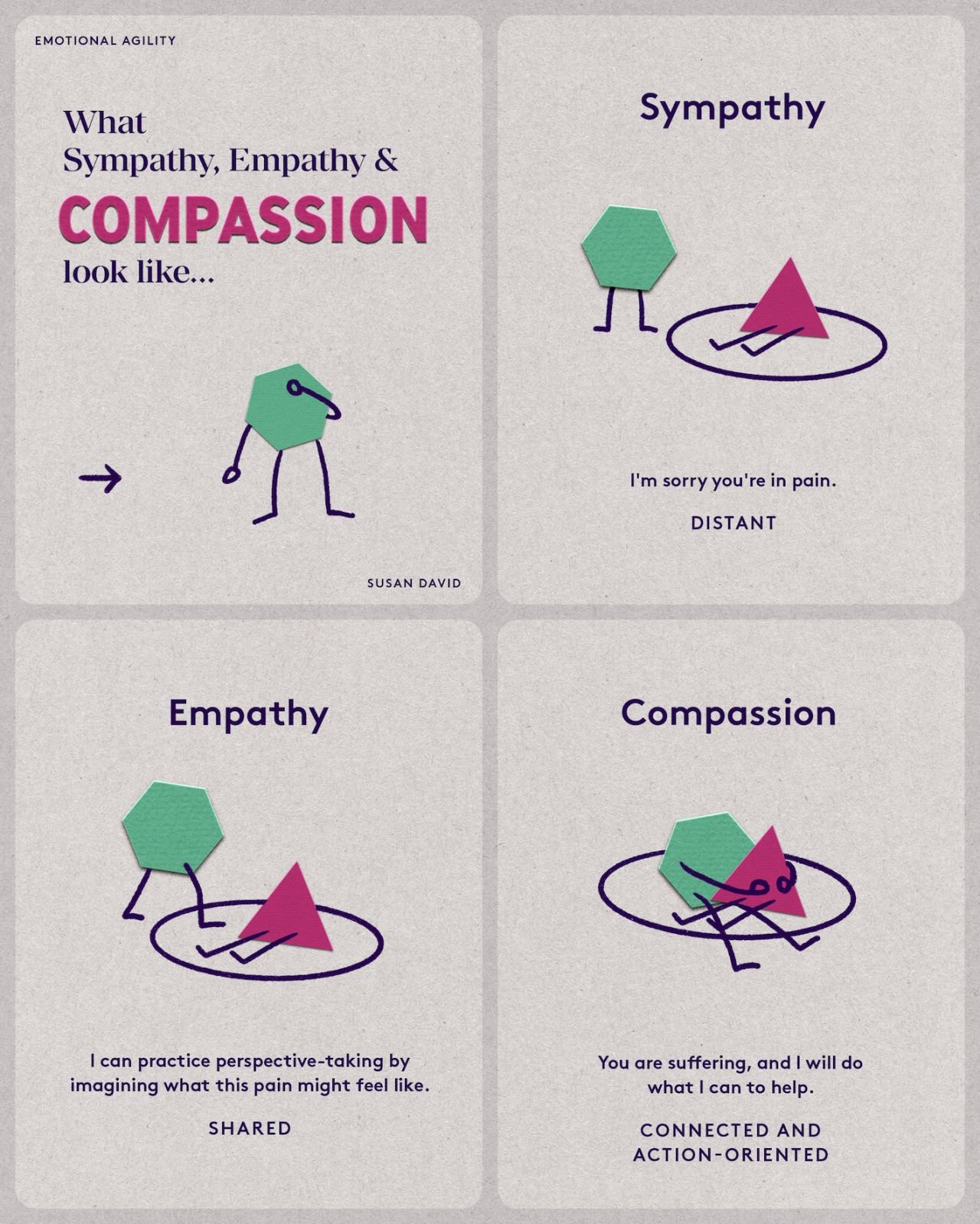'Just get on with it…'
Is this attitude undermining your mental health or that of someone you know?
Attitudes towards mental health have transformed and the importance of caring for our mental states is beginning to be seen as vital as caring for our physical health.
However, when we don’t feel well in ourselves - low, sad, confused or overwhelmed, we often add unnecessary layers of suffering by criticising ourselves for not feeling well and being at our best and holding the false view that ‘we should get on with it’. This harsh attitude is often what is most undermining to good mental health.
What’s more, when others experience emotional difficulty we often don’t know how to respond and deal with it. We often go into fixing mode because we can’t bear to see someone struggle emotionally.
As the spotlight focuses on mental health this week, I wanted to explore the attitudes of sympathy, empathy and compassion towards ourselves and others and their role in fostering mental wellbeing.
The three attitudes are often misunderstood and interchanged when they are fundamentally different. This diagram is a helpful explanation of each attitude:
Image: Susan David
Sometimes sympathy is enough to let a loved one, friend or colleague know that we are aware of their difficulty in the same way as we would if they shared with us a happy event or experience. To say: “I really get that this is difficult for you”, can be all that’s needed for someone to feel acknowledged, seen and heard in that moment.
Empathy goes further. It’s our capability to really hear what the other is saying and then feel it as though you were in the other person’s skin. It taps into our common humanity, into the full dimension of what it means to be human: we all know what it’s like to be sad, angry, stressed etc. and we all know what it’s like to be joyful, at ease, content etc.
Compassion arises when we have the courage to willingly engage with our pain, difficulty, suffering and that of others. It enables us to be alongside our own and others experience with openness, kindness and curiosity and to do what we can to help alleviate the difficulty. This does not mean that we have to fix or solve a problem or take responsibility for the other. It’s more about saying, ‘I can see this is hard for you, I wonder what you need right now?” It might be time to just be, offer a chance to talk, a walk or a cup of tea.
Image by John Hain
There is also a pitfall with all three attitudes.
When we are unaware, we can tip into the near enemy of sympathy, empathy and compassion which is pity and sentimentalism. This is not helpful. It’s colluding with one’s own and others difficulty.
“Poor you, I can’t believe this is happening to you…”
Or we go into the far enemy which is horrified anxiety:
“This is terrible. I can’t bear seeing you like this.”
The bedrock attitude of sympathy, empathy and compassion is kindness: openness, care, friendliness, warmth. Without kindness no other positive attitude is possible. Kindness is our basic goodness that we all already have.
In our day to day life at home or at work, we can practice all three attitudes and notice when sympathy, empathy or compassion are appropriate and most needed and see how it affects our own and others’ mental wellbeing.
If you’d like to find out more about how coaching and mindfulness (training the mind and heart) can help you have and maintain a healthy mind why not book an initial complementary coaching conversation with me? I see clients while walking in Victoria park, London, or online.


